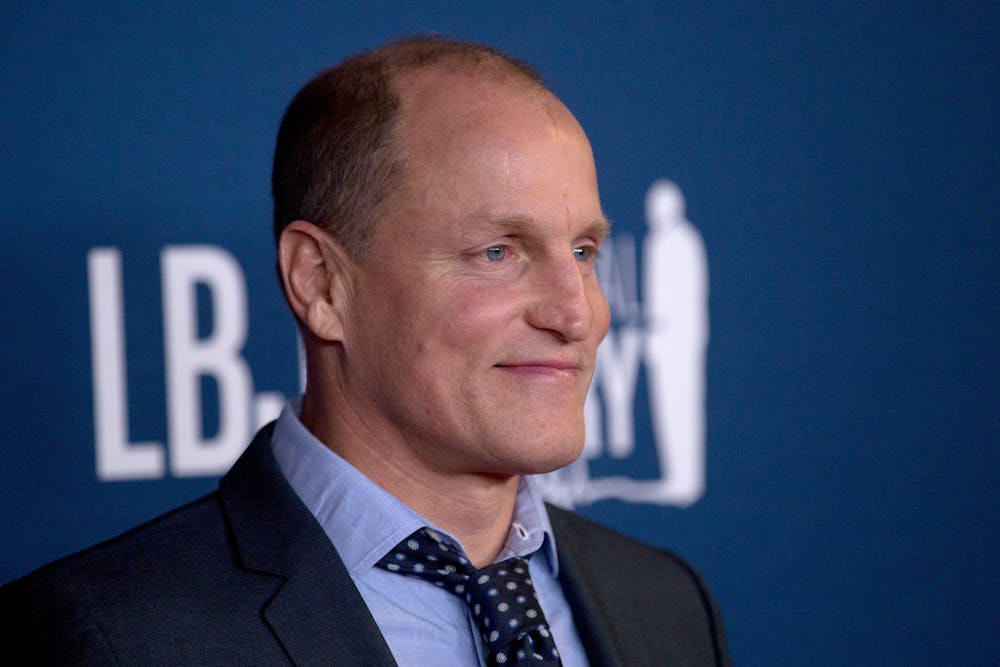The premise of a group of people stranded on an island is an overdone trope in modern media. However, while Triangle of Sadness is not radically different in its approach to the content, it definitely succeeds in presenting it in a way few have done before. This is primarily because of its extensive focus on power dynamics before the characters get stranded. In fact, the ‘stranded on an island’ storyline only composes the last third of the film.
.The film starts in the world of modelling and social media influencers, where two models — Carl (Harris Dickinson) and Yaya (Charlbi Dean Kriek) — are the hot young couple of the industry. Their relationship, however, to Carl’s great disappointment, is merely a good career move for Yaya because their partnership merges their fan-bases and expands their online following.
Money and gender roles are the central themes of this first part of the film, where Carl wants them to share financial responsibilities like paying for dinner equally, while Yaya agrees and then ignores the bill when it’s her turn to pay. Through these incidents, director Ruben Östlund creates a microcosm of the politics that Triangle of Sadness explores later.
The film then moves to a luxury yacht, where the ultra-rich, like a Russian oligarch and an old British couple with an arms-manufacturing empire, are on vacation. The yacht is led by Captain Thomas Smith (Woody Harrelson), a drunkard who locks himself in his room to the great consternation of his crew. Carl and Yaya are also on the yacht for free due to their influencer status, which according to Carl means “they just get stuff for free.”
Carl and Yaya are outsiders on the yacht — two young and beautiful pieces of eye-candy among a crowd of old businesspeople with real power. While Carl takes Yaya’s pictures for her Instagram, the others are running the world. This juxtaposition of the ineffectuality and obliviousness of the younger generation with the sordid strength, ambition and accomplishment of the older one clearly foreshadows the doom of the future.
And then the storm comes. Much like the storm approaching humanity, this storm comes when everyone is enjoying dinner and they’d be damned if they let a rocking boat spoil their fun. They keep faith in their captain and crew — the captain who can barely conceal his drunken haze as he hosts the dinner and the crew that needs to bring out the wine and the food before looking at the weather.
Eventually, a mass sea-sickness kicks in among the guests, and the boat turns into a hysteria of vomit and panic as the drunk captain and the Russian oligarch take over the public address system to discuss communism and capitalism. The yacht is flooded with sewage and what was once a luxury cruise is now a ticking time-bomb with no leadership to keep the boat afloat. In the morning, a handful of guests and staff find themselves stranded on an island, while the others drown.
This is what makes Triangle of Sadness special for me — it is not merely an examination of our future but also one of our past and present. It explores where we are going, but also where we come from and, most importantly, how similar those two are. The hard lines of social hierarchy that existed on the yacht between the guests and the staff are reconstructed on the island, but they still exist nevertheless.
Carl and Yaya make it to the island and their utility is limited to their looks. For a generation obsessed with politics and leadership, they are shamelessly bad at both. Moreover, Yaya suddenly finds a new possessiveness for Carl when the matriarch on the island — a toilet cleaner on the yacht who is exceptionally skilled at catching fish in the sea — takes him as her lover. Even stranded on an island, her need for her fake love and status is supreme.
The film ends with a chance of making it back to the world and the compulsion of the powers-that-be to maintain the status quo, however rotten it might be. The matriarch would rather remain on the island a queen than make it back to society, where she would go back to the bottom of the food chain. Her dilemma and anger is apparent as she reacts to Yaya, the most useless person on the island, offering her a job after the ordeal was over.
Triangle of Sadness proves itself to be a unique reconstruction of society. It factors in the obvious — greed, power and utility — but breaks new ground by exploring this story in the context of the modern world and the new generation of young people. It is sadly fitting that the only representatives of youth on the yacht are social media influencers.
As the winner of the Palme d’Or at the Cannes Film Festival this year, and as a truly interesting film that comments on the world with witty subtlety, I highly recommend you to watch Triangle of Sadness. I doubt it will be enjoyable for everyone, but it is a thoughtful movie that isn’t afraid to get weird to reflect the absurdity of the world we live in today.





